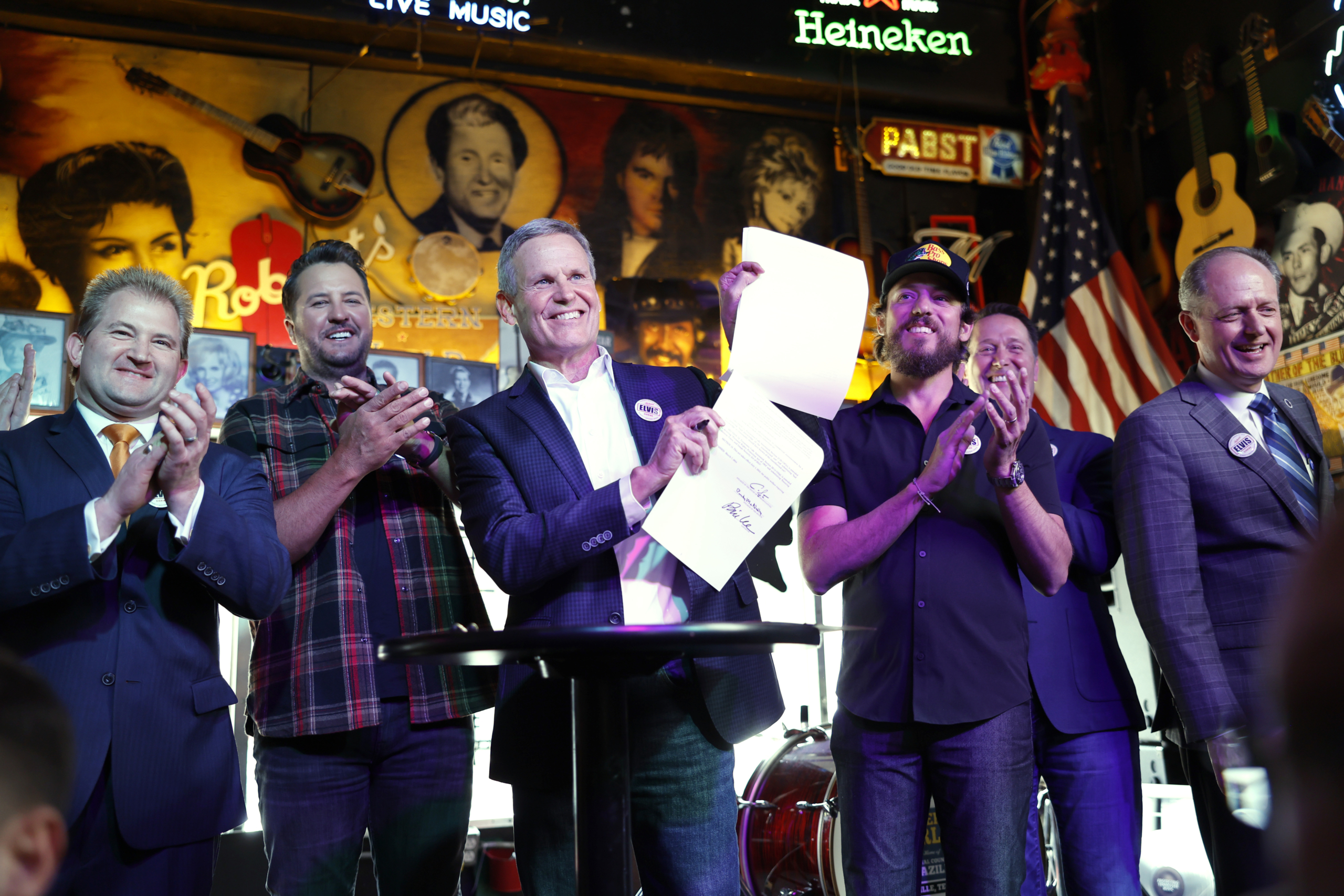
Tennessee has positioned itself as a pioneer in the intersection of music and technology by enacting the first law in the United States aimed at safeguarding musicians and industry professionals from the encroachments of artificial intelligence.
Signed into law by Governor Bill Lee on Thursday, March 21, the legislation, known as the Ensuring Likeness, Voice, and Image Security Act—or ELVIS Act—seeks to prevent AI from replicating an artist’s voice without explicit consent, effective from July 1. This legislative move underscores Tennessee’s commitment to protecting the unique talents and intellectual property of its vibrant music community, reflecting its status as a historic cradle for musical innovation and talent.
The ELVIS Act emerges against the backdrop of Tennessee’s unique legal stance, where an individual’s name, photographs, and likeness are treated as property rights. The addition of vocal likeness under this protection aims to equip artists with legal recourse against unauthorized AI-generated reproductions of their voice, name, or image. The law introduces civil liabilities for those who misuse technology to exploit an artist’s identity without authorization, marking a significant step in the legal battle against digital impersonation.
Will the ELVIS Act Truly Protect Artists’ Rights?
Despite the law’s pioneering nature and the broad support it has garnered within the music industry, its practical effectiveness remains a question. The legislation represents a rare moment of bipartisan agreement in the Tennessee Statehouse, a notable feat given the current political climate. However, as Governor Lee and other supporters concede, the true test of the ELVIS Act will be its application in protecting artists’ rights in the face of rapidly advancing AI technologies.
Artists, particularly those in the bustling music scenes of Nashville and beyond, have expressed urgent concern over the tangible threats posed by AI, with instances of unauthorized digital mimicry already encroaching upon their professional and personal lives. The legislation’s enactment, symbolically held at Nashville’s iconic Robert’s Western World, reflects a community’s collective effort to safeguard its cultural heritage and the individual rights of its members.
The naming of the ELVIS Act not only pays homage to one of Tennessee’s most legendary figures, Elvis Presley, but also draws on the state’s history of protecting the rights of public figures posthumously. The law builds on the precedents set by the 1984 Personal Rights Protection Act, extending the legacy of rights protection to include the challenges posed by modern technology to artists’ vocal identities.
Related News:
Featured Image courtesy of Jason Kempin/Getty Images for Human Artistry Campaign
